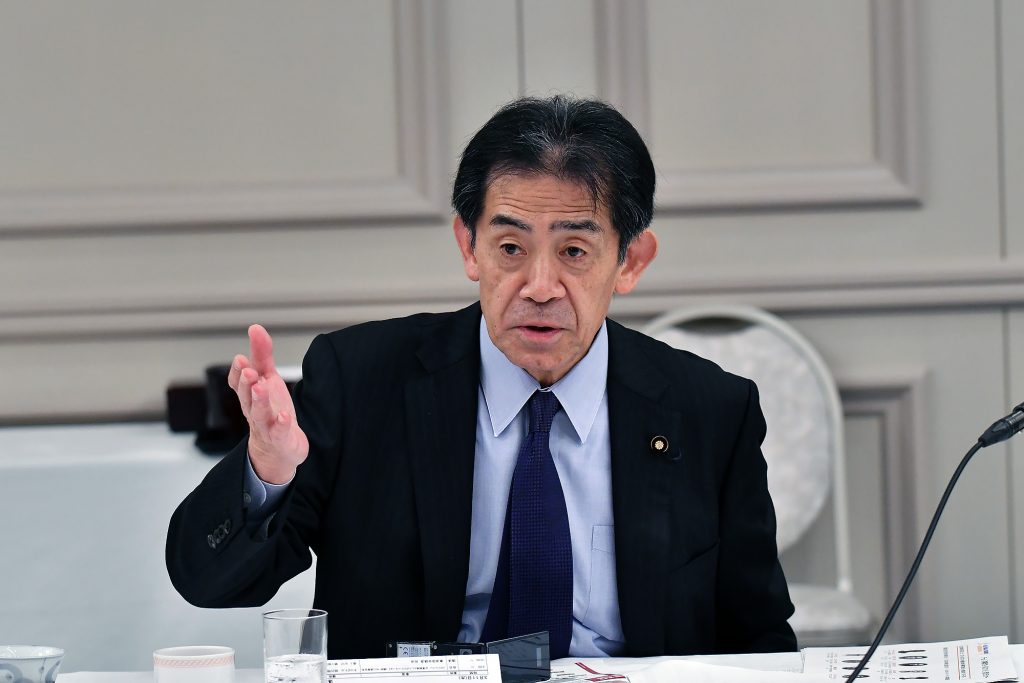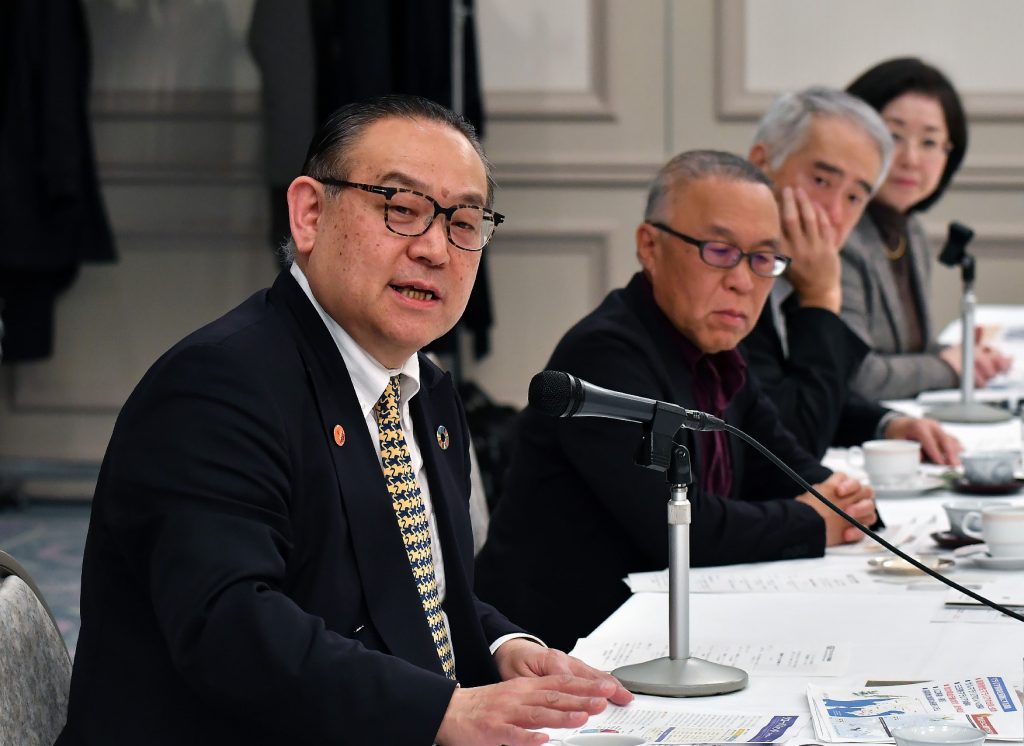On March 10, the FGFJ Diet Task Force met with Dr. Noboru Minakawa of the Nagasaki University for Tropical Diseases and Dr. Shigeyuki Kano, director of the Department of Tropical Medicine and Malaria at the National Center for Global Health and Medicine, to discuss the relationship between climate variation and malaria. The topic generated a high level of interest among Task Force members, with 11 Diet members participating in productive discussions that will be highlighted in an upcoming report.
The main points from this breakfast meeting included Dr. Minakawa’s research on climate change’s relationship to the spread of malaria. While it was discovered that global warming per se has no direct correlation to the incidence of malaria, climate variation is one of the causes of malaria outbreaks. Dr. Minakawa explained how climate forecasts can predict malaria incidences, which enables countries to make the necessary preparations.
In response to this revelation, Dr. Minakawa created a climate prediction model for southern Africa, following a joint study with the Japan Agency for Marine-Earth Science and Technology (JAMSTEC). With this model, it is now possible to predict climate patterns as much as three to four months in advance, helping experts better predict malaria epidemics.
This “malaria climate forecast” can be expected to have positive effects, facilitating the process of stockpiling medicine and mosquito nets and coordinating indoor residual spraying among communities. Climate forecasts and infectious disease forecasts can also be regularly shared with relevant local organizations. Further information on Dr. Minakawa’s joint study with JAMSTEC is available on the JAMSTEC website.
In his presentation, Dr. Kano noted that unlike AIDS and tuberculous, malaria is an acute disease, meaning the number of malaria cases can be reduced if we take the appropriate measures to cope with the disease. Dr. Kano stressed the importance of having those involved in the fight against malaria consider how climate variations affect local environments.
List of Participants
Members of the Diet Task Force
- Ichiro Aisawa, Member of the House of Representatives (Liberal Democratic Party) [Task Force Co-Chair]
- Motohisa Furukawa, Member of the House of Representatives (Democratic Party for the People) [Task Force Co-Chair]
- Toshiko Abe, Member of the House of Representatives (Liberal Democratic Party)
- Noriko Furuya, Member of the House of Representatives (New Komeito)
- Tetsuro Fukuyama, Member of the House of Councillors (Constitutional Democratic Party of Japan)
- Susumu Hamamura, Member of the House of Representatives (New Komeito)
- Hitoshi Kikawada, Member of the House of Representatives (Liberal Democratic Party)
- Shuhei Kishimoto, Member of the House of Representatives (Democratic Party for the People)
- Shinji Oguma, Member of the House of Representatives (Democratic Party for the People)
- Masaki Ogushi , Member of the House of Representatives (Liberal Democratic Party)
- Norikazu Suzuki, Member of the House of Representatives (Liberal Democratic Party)
Friends of the Global Fund, Japan (FGFJ)/Japan Center for International Exchange (JCIE)
- Akio Okawara, President and Chief Executive Officer, Japan Center for International Exchange (JCIE)
- Satoko Itoh, Managing Director and Chief Program Officer, Japan Center for International Exchange (JCIE); Assistant Director, FGFJ
- Taori Goto, Program Associate, FGFJ/JCIE
Observers
- Satoshi Harada, Senior Managing Director and Secretary-General, Malaria No More Japan
- Yumiko Iizuka, Deputy Secretary-General, Malaria No More Japan


The FGFJ Diet Task Force is a multi-party initiative that brings together Diet members to examine ways to broaden Japan’s international role in combating the global threats of AIDS, tuberculosis, malaria, and other communicable diseases. The task force convenes several times a year with experts and leaders from around the world. For more information, visit the FGFJ Diet Task Force page.

